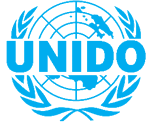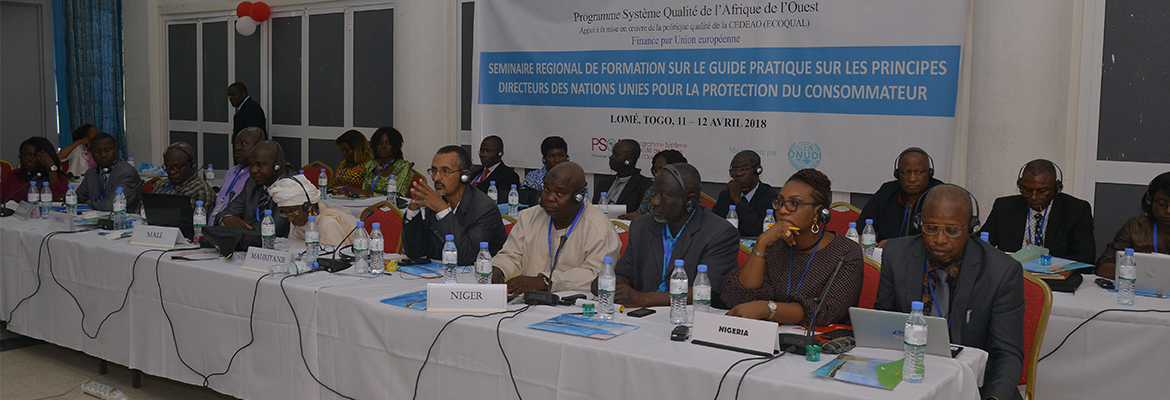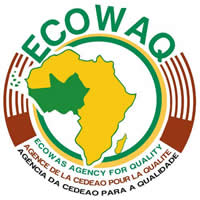





Regional Training Workshop on the United Nations Guide for Consumer Protection: Strengthening the welfare of the consumers in the ECOWAS region
"Developing the quality consciousness of producers, consumers and political actors through information and training actions" - This is one of the key recommendations of the 1st ECOWAS Quality Infrastructure Forum, organized in Dakar from January 29th to February 1st 2018.
As a response to this recommendation, a regional training workshop has been organized on 11th and 12th of April 2018 in Lomé, Togo. This took place within the framework of the West Africa Quality System Programme (WAQSP), funded by the European Union (EU) and implemented by the United Nations Industrial Development Organization (UNIDO). The focus of this workshop was to inform 40 participants from 15 West African countries on good practices in the field of consumer protection, with a view to raising awareness on quality matters and ultimately increasing demand for products that are safe and healthy.
To this end, UNIDO partnered with UNCTAD to deliver this two days’ training on the United Nations Guide for Consumer Protection. This workshop brought together national consumer protection associations and governmental bodies. It was opened by the Togolese Minister of Industry and Tourism, together with the ECOWAS Commissioner for Industry and Private Sector Promotion and the UNIDO Focal Point in Togo.
This workshop is in line with the strategic positioning of UNIDO and contributes to the implementation of the 2030 Agenda through SDG 9 and SDG 12. According to Mamadou TRAORE, ECOWAS Commissioner for Industry and Private Sector Promotion, this is also part of the regional vision of ECOWAS.
A draft work plan has been established for the implementation of the main recommendations of the guide at regional and national level; notably for updating or adopting legal texts on information and consumer protection.
"Now we know what role we have to play with the ministry in charge of these matters so that a consumer protection law, acceptable to all, could be adopted," Mr. Maguette FALL, President of the Association for the Defense of the Environment and Consumers of Senegal, expressed.
Mrs. Salimata DIARRA, President of the Consumers Association of Mali stated that "[…] we need to strengthen our partnership with the WAQSP so that the importance of the protection of the individual consumer can be understood by everyone".
Like other participants, Mr. Marcel KOURAOGO, Permanent Secretary of the League of Consumers of Burkina Faso, plans on his return to "convene a General Assembly with the delegates of the 45 sections representing the 45 provinces of the country, to share the major decisions of the workshop and explore ways to implement them.”
In addition, the Chief Technical Adviser of the WAQSP recalled that the consumer associations should be part of the decision-making bodies of the ECOWAS Quality Infrastructure, set up during the Dakar Forum.
However, these associations should speak with the same voice and nominate consensual representatives. They promised to work on creating this framework that did not exist before; UNIDO will provide under the WAQSP the necessary technical support to ECOWAS for the implementation of this framework.
The workshop has been carried out in conjunction with the United Nations Conference on Trade and Development (UNCTAD), within the framework of the West Africa Quality System Programme (WAQSP), funded by the European Union and implemented by UNIDO.
 This program is funded by the European Union with the technical support of UNIDO, the implementing Agency
This program is funded by the European Union with the technical support of UNIDO, the implementing Agency
The views expressed in this publication do not necessarily reflect those of the Commision of the European Union




Copyright - 2019 - ECOWAS AGENCY FOR QUALITY